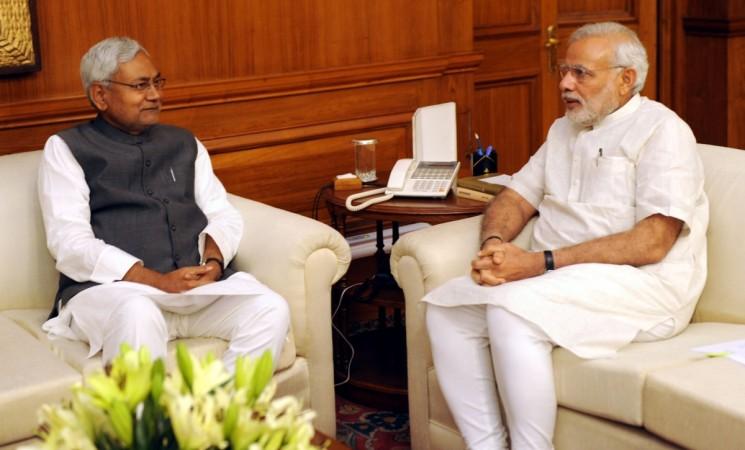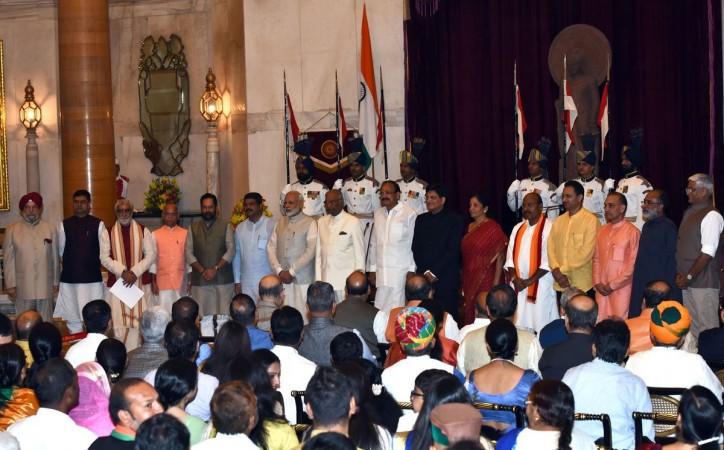
The BJP's indifference towards the JD(U) in the latest reshuffle of the NDA government effected last Sunday (September 3) might not have resulted in a major controversy but it certainly has raised some questions for the future.
The JD(U), which recently returned to the NDA after quitting the Mahagathbandhan in Bihar over a fallout with Lalu Prasad Yadav's RJD, was reportedly not offered even an invitation to the swearing-in ceremony. Inside reports said the JD(U) leadership was not happy with the two berths the BJP had offered them and sought more plump portfolios like the railways. The JD(U) was of the opinion that it could not be treated like the Lok Janshakti Party of Ram Vilas Paswan. The Shiv Sena was the other ally of the BJP which was not happy with the saffron party's 'big brotherly' attitude.
There are two sides to this story.
The first is about Prime Minister Narendra Modi. Prior to the 2014 Lok Sabha elections, Modi was often seen as a leader who would not be able to run a coalition government for not many would prefer to accompany a man who was accused of not protecting minorities in his state Gujarat as its chief minister in 2002. But the suspicion was buried after the BJP bagged a massive majority itself in the election.
In fact, in the days following the mandate, Modi saw more people joining him, contradictory to what it was earlier. However, in 2019, Modi will be having his share of anti-incumbency baggage and if somehow, he fails to get the BJP touch the magic figure of 272 and ends up leading a regime requiring allies to make up the numbers, will today's big brotherly approach work?

It will be interesting to see how the prime minister, who has looked nothing less than a flawless superman so far, learns to compromise on his own choice and will under political compulsion. The railways ministry has been the biggest victim of the compulsion of coalition politics as populist politicians have milked it to their advantages while allowing it to bleed. Can Modi, a no-nonsense leader, allow that to happen?
The other story is about Nitish Kumar. The chief minister of Bihar has certainly allowed his own image to take a beating through his latest act of returning to the NDA which he had left with a lot of noise in 2013. That Kumar's stature has diminished is reiterated by the BJP's refusal to take his party into confidence in the latest reshuffle.
For Kumar, one of the most prominent leaders of the country at the moment, this snubbing doesn't reflect well and gives his opponents like Yadav a golden opportunity to demean him. Post 2019, even if the NDA returns to power with a reduced majority, how much clout will Kumar's reduced stature will allow him to have in the governance?
For the BJP now knows that Kumar is left with very little option after his divorce with Yadav and the Congress. If his partnership with the BJP is broken at any point of time hereafter, Kumar will only be thrown into the dustbin of history with very little chance of making another comeback.
For both Modi and Kumar, the latest reshuffle episode poses some questions and they will not find them comfortable enough.









